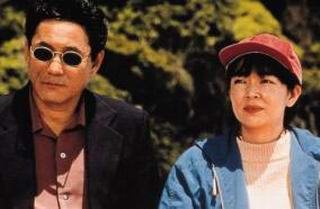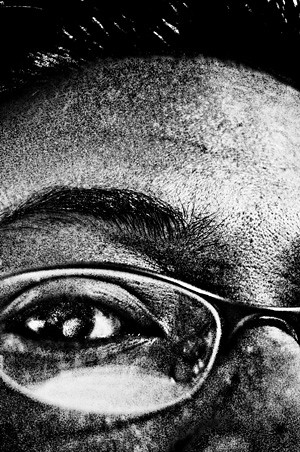
HANA-BI (english title: Fireworks)
Written and Directed by: Takeshi Kitano
Copyright 1997
Released by: The Kitano Office and Bandai Pictures
Cast: Beat Takeshi
It started back after I read a mildly critical (yet, concised) review of Takeshi Kitano’s opus (or whatever they want to call it, I don’t care) Hana-bi (Fireworks) in a thread in Pinoydvd.com. The reviewer, in someway, managed to rate it four stars (five being his highest and possibly indicating a masterpiece), practically saying that it was Takeshi Kitano’s best work to date. I haven’t seen any of his movies when I read the review, so I guess comparison is not what in my mind at that moment. It basically made me believe that it equalled anything good in the Japanese cinema-from Akira Kurosawa to Kiyoshi Kurosawa to Takashi Miike or Yasujiro Ozu. When the Japanese Embassy through its Japan Cultural Foundation held its second Eiga Sai this year (the first was Kiyoshi Kurosawa last March-I saw Kyua during that festival) and featured six films of Takeshi Kitano in a month-long film festival at SM Megamall, UP Film Center and the Cultural Center of the Philippines, I did not hesitate to go. Besides, it’s free.
Anyway, Hana-bi’s simple plot is nevertheless simple. The only factor that contributes to its complexity is perhaps, Takeshi Kitano’s uncharacteristic method of filmmaking. From there, the film begins to transcend to a different genre and possibly reclines towards a certain distinction. The film is about a corrupt cop who robs a bank in order to pay for his debt to the Yakuza and at the same time come to grips with the reality of his wife’s incurable malady. He settles his dues and takes off to a vacation with his wife pursued by the Yakuza (who are unbelievably clever in where to track him down) and his police colleagues (who, in this case are noticeably dumb).
Hana-bi is not an easy film to watch, at least not at all watchable. It has a unique feel of allowing you to fall in its stuporous trap and eventually drag you towards manifesting a blank realization. It pushes the audience (in this manner, me and my friends who saw it) into a violent semi-consciousness, influenced by both Kitano’s fondness for unnecessary bloodbath and the `comatose-al’ effect he incorporates in the film. I will be having difficulty in explaining my definition of such experience for I’m still struggling to find myself in the rubbles of the movie’s incoherence and likewise, a personal premeditated miscomprehension. Nonetheless, I left the theatre reeling from the aftereffects of Hana-bi, shaken but not stirred (many thanks to Ian Fleming, though), a heavy cloud forming within my head. Yup, the film is similar to a dose of Tramadol or any sedative, it leaves you gasping to search for your thoughts amidst an immediate bout of temporary inability to think.
The principal factor that makes Hana-bi a distinct production is probably Kitano’s style of perpetual shots on a certain background-be it necessary/significant or unnecessary/insignificant to the development of the story. He permits the profound silence to speak for itself, meanwhile letting the audience to arrive at the point where they begin to get naturally bored or extremely close to hallucination. While this film-induced hypnosis gradually develops, it is broken by fragments of violence-and ironically, a satisfying but questionable downbeat ending will again, contribute to a recurrence of such expression. I carry plenty of questions that Kitano bequeathed me as the end credits rolled, however your thoughts are dissipated as you left your seat. It did occur to me somehow that Hana-bi diverts itself from the middlebrow Japanese cinema-a direction many of the contemporary Jap directors (Hirokazu Kore-eda, Kiyoshi Kurosawa) are currently traversing. Kitano (while we will often remember as the `king’ of the tv game show’s obstacle-ridden kingdom), prolifically makes this entrancing, yet twisted melodrama a dizzying pace to the straightforward but rapid rambling of a number of films dealing with gangsters and Yakuza.
Although a lot of people might disagree with my perception that Hana-bi deserves bagging honors in an abundance of international film festivals (Venice International Film Fest; Berlin Film Fest, etc.), initially I was also caught in the intricate and deeply philosophical or rather somnolent quality of Hana-bi, but as what I have surmised, the film hits you hours or days after you’ve seen it. It sends the viewer into the whirlpool of metaphors and perhaps, those superfluous scenes which to Takeshi Kitano has an uprooted importance. Next thing you know, you’ll be able to appreciate it one way or another-though unlike Kiyoshi Kurosawa’s Kyua or Kairo-you won’t need another serving. Justifiably, indeed, that Hana-bi maybe one of Kitano’s best works-to my opinion however, my choice of films depend on how they are craftily presented. Takeshi Kitano may be the Quentin Tarantino of the Japanese cinema, manipulated the camera on his own terms; in some way defied the tradition of contemporary filmmaking technically and visually: less pretention, but with certain exaggeration. It also made me think that Hana-bi may be the overqualified arthouse film, although I believe that Takeshi Kitano will oppose such opinion.
Likewise, I will not push myself into admitting that Hana-bi is one of the greatest films I’ve seen, though I will not also consider this to be crap. I have managed to like Kyua (Cure) and Kairo (Pulse), even Kinji Fukasaku’s Battle Royale-films from the Land of the Rising Sun that successfully breached the barrier of my choice of cinema. With respect to Takeshi Kitano, I did, in a way appreciate Hana-bi-maybe because it introduced me to a discernible new method of storytelling and probably treated us to a style diverse from the usual Japanese cinema. I maybe hallucinating or whatever, but I’ll be going back this Friday to see Kitano’s other films.
Etchie Piñgol
October 1, 2003
Office of Student Affairs
University of the Philippines Manila


No comments:
Post a Comment